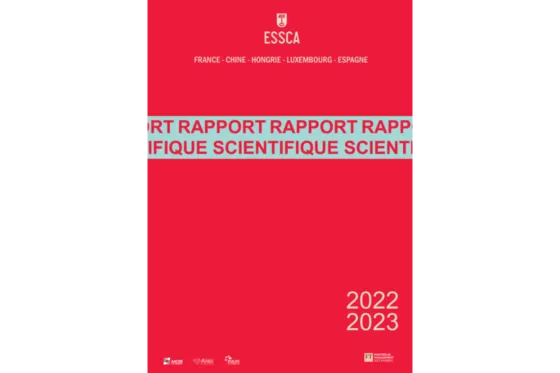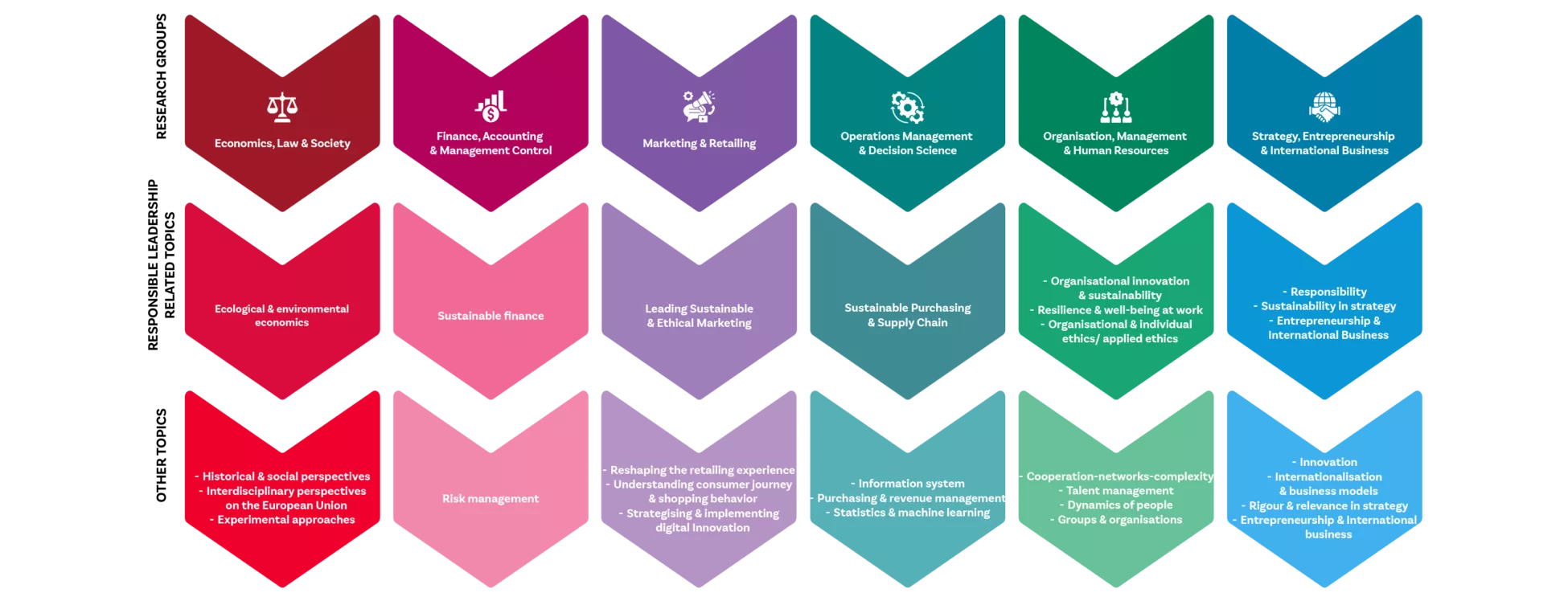ESSCA Research
ESSCA is proud to host around 200 faculty members with research background from over 40 different countries.

Over the past 5 years, with the help of our 6 research groups, 6 research institutes and 2 research labs, the team has produced several hundred scientific articles, participated in over 400 scientific conferences, and published more than 60 books. At ESSCA, researchers can benefit from a stimulating and supportive research environment, dedicated to fostering research collaboration and high-level publication. All academic disciplines are represented on each campus, allowing for both the development of a wide range of research topics and the participation in cross-disciplinary projects where excellence flourish.
- ESSCA Research's accomplishments over the past 5 years -
+100
scientific articles produced
600
scientific conferences participations
+80
books published

Scientific Report
Each year, ESSCA publishes its Scientific Report, a document that summarizes all the research activities carried out by our faculty.
Discover all the initiatives from our disciplinary research groups, the academic events and collaborative projects led by our research institutes, the many scientific activities rooted in the ecosystem of our various campuses as well as the exceptional achievements of our researchers.

Open and collaborative research
ESSCA supports a partnership-based and collaborative approach, as evidenced by our ambition to connect campuses to their regional scientific ecosystems.
We encourage collaborative research with other national and international laboratories, in conjunction with scientific and socio-economic players.
We actively support the dissemination of this research, sharing it with its various communities, aiming to make a significant contribution to public debate and society.

Academic freedom
Academic freedom is one of ESSCA’s fundamental values. Each member of the faculty is encouraged to define and develop his/her own scientific project.
Faculty members are free to conduct the research of their own choice, to pick their topics, their in-house or external collaborations and their publication media, provided they meet the quality requirements for academic work, comply with the ethical principles of academic research, conform to the laws of the country in which they practice, and meet the criteria set by the CEFDG in France and other accreditation bodies internationally.
Contribution to ESSCA’s overall research agenda as well as to the research areas of the school’s research groups is encouraged but is not mandatory.
A common topic: Responsible leadership


Responsible leadership
ESSCA’s central research theme is responsible leadership.
This theme, which is directly linked to ESSCA’s mission, is rooted in the work of the scholars: more than one third of scientific productions are related to the issues of corporate social responsibility, sustainable development, the sustainability of economic models, green finance, etc. It bears a shared vision of societal changes and new forms of organisation while promoting the school’s history, values, culture, and DNA.
Moreover, this overarching theme can be broken down by discipline and thus be applied by all the school’s research groups. ESSCA’s central research theme is responsible leadership.

Research Groups
The ESSCA research groups organise over 100 events and about ten "Meet the Editor" events per year.
Research Institutes
Research institutes at ESSCA: impactful research projects in specific contexts
Research Labs
Research Labs at ESSCA: Shared Resources for Research and Impact
Scientific Council
ESSCA’s Scientific Council is an external committee composed of research directors and scholars recognised for the quality of their research both in France and internationally.
Ethics Committee
ESSCA affirms its commitment to the production and dissemination of responsible research and presents below the measures implemented to ensure compliance with the principles of scientific integrity and ethical research.
Knowledge and Impact
Research at ESSCA is characterised by its commitment to the production and dissemination of innovative and relevant knowledge. We have an integrated vision of research and its impact, combining academic excellence, relevance to economic actors and societal responsibility.